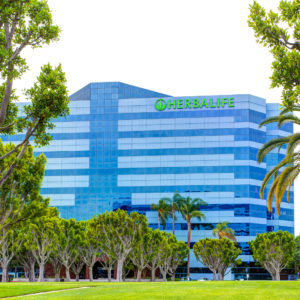Admitting you were wrong is never easy — but it’s even harder when you bet $1 billion you were right.
Five years ago, Bill Ackman of Pershing Square Management, the powerhouse hedge fund, made that bet — shorting a reported 20.2 million shares of stock in the supplement company Herbalife as part of a deliberate effort to implode the company and make a buck off the deal.
Ackman publicly accused Herbalife of being a “sophisticated pyramid scheme” and portrayed his attack on the company as a kind of public service — albeit one he hoped from which to profit handsomely.
So far, he hasn’t.
Instead, he’s lost a Brinks truck load of money pursuing what increasingly seems to be a personal vendetta against Herbalife rather than a business decision. Last week, the value of Herbalife stock rose to $75.25 per share — a jump in value of more than 11 percent, representing a three-year high — after news broke that the company was considering going private and had offered to buy back $600 million in shares from investors (including Ackman’s bitter rival, Carl Icahn, who owns a 24 percent stake in Herbalife) for $68 per share. The investors declined the offer — which strongly suggests the shares are under-valued.
Icahn’s stake increased in value by almost $140 million — and Icahn is no fool.
Ackman, on the other hand …
His one-day losses amount to more than $111 million. This in addition to his previous losses over the past years (including more than $400 million this year alone) as he has pursued Herbalife with the doggedness of Inspector Javert.
Or perhaps Captain Ahab is the more apt characterization?
After all, how could shares in a company publicly accused of being a “sophisticated pyramid scheme” — and the object of a years-long, concerted public relations attack by a heavy-hitter hedge fund manager — go up in value if the company is, as Ackman insists, fundamentally fraudulent?
As the robot in the iconic 1960s TV sci-fi series “Lost in Space” famously used to say: It does not compute!
Part of the problem — for Ackman — is that pyramid schemes are defined by the absence of a product. They don’t sell anything. They work — for a time — by conning new “investors” to come onboard, who then make money by conning another group to come onboard. The pyramid rises — and the “investors” who get in early often make money. But the scam never lasts very long because of the fundamental fraudulence of the operation.
Eventually, you run out of people to con.
But Herbalife has lasted for almost 40 years.
The company was founded back in 1980 by Mark Hughes, who developed a line of supplements and weight loss products that are sold through independent distributors.
Actual products.
Herbalife’s business model is similar to that of Mary Kay, the cosmetics company.
Supplements are not regulated as drugs by the FDA — and some (including Ackman) have questioned the efficacy of the supplements sold by Herbalife. But that is not the same thing as operating a “sophisticated pyramid scheme” and the fact remains that millions of people (3 million in the United States alone, to be precise) eagerly purchase Herbalife’s products and thousands of people make a living selling Herbalife’s products, and no one — even Ackman — is alleging that people aren’t getting something for their money or earning money by selling the company’s products.
Whether Ackman, personally, thinks Herbalife’s products aren’t worth the money is as irrelevant as your neighbor down the street believing you made a poor decision by purchasing a Ford rather than a Chevy.
Despite Ackman’s maneuverings against Herbalife — including some dodgy under-the-table dealings with politicians such as Rep. Linda Sanchez, whom Ackman may have wheedled to act on his behalf with the Federal Trade Commission, the deployment of PR hit teams to slam publicly Herbalife and its products, and payments made to people to travel to Washington to participate in an anti-Herbalife rally — the company remains not only on its feet, but profitable.
The FTC did eventually investigate Herbalife — but Ackman’s “sophisticated pyramid scheme” allegations were not confirmed by the Feds, who certainly would have if they could have. The investigation took place — and concluded — during the administration of President Barack Obama, whose regulators are certainly not the sort to soft-shoe corporate malfeasance. If the smoke Ackman has been alleging for five years ongoing were real, the FTC would have surely discovered the fire.
Instead, Herbalife remains in business, despite Ackman’s Ahab-like obsession with putting it out of business.
It’s got to be driving him nuts.
And may drive him broke, if his reason doesn’t put the brakes on his emotions.

